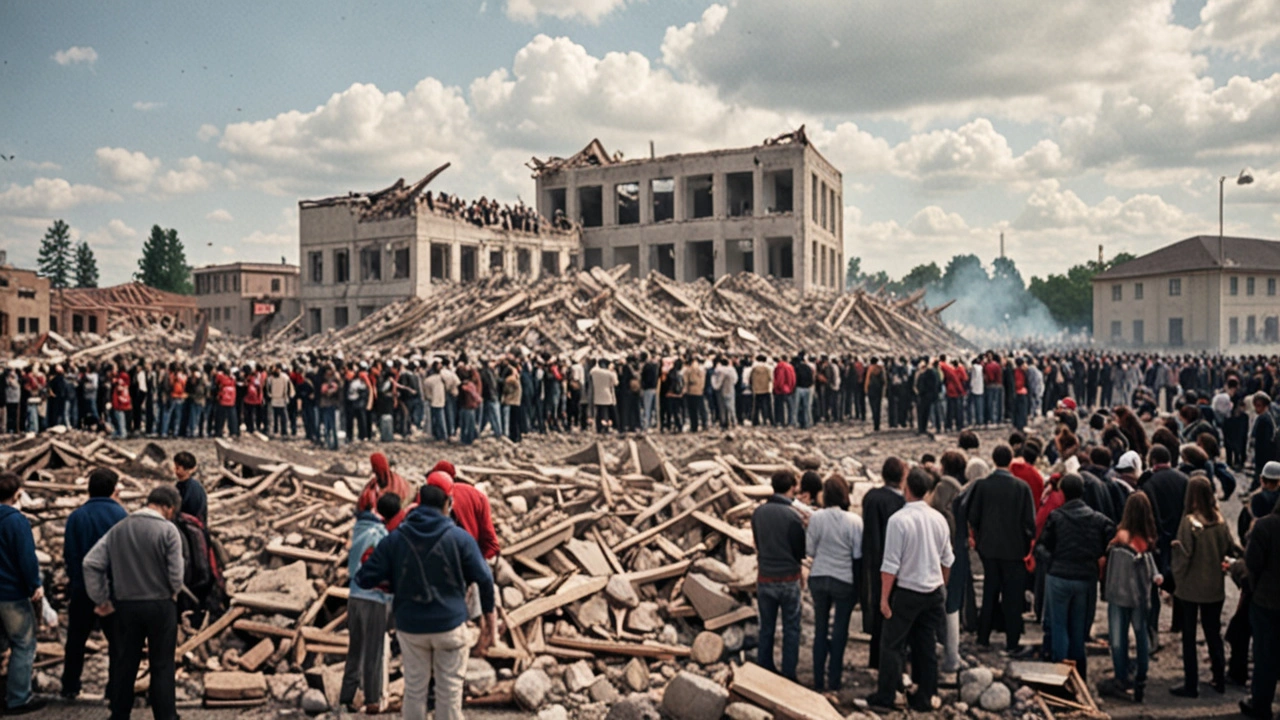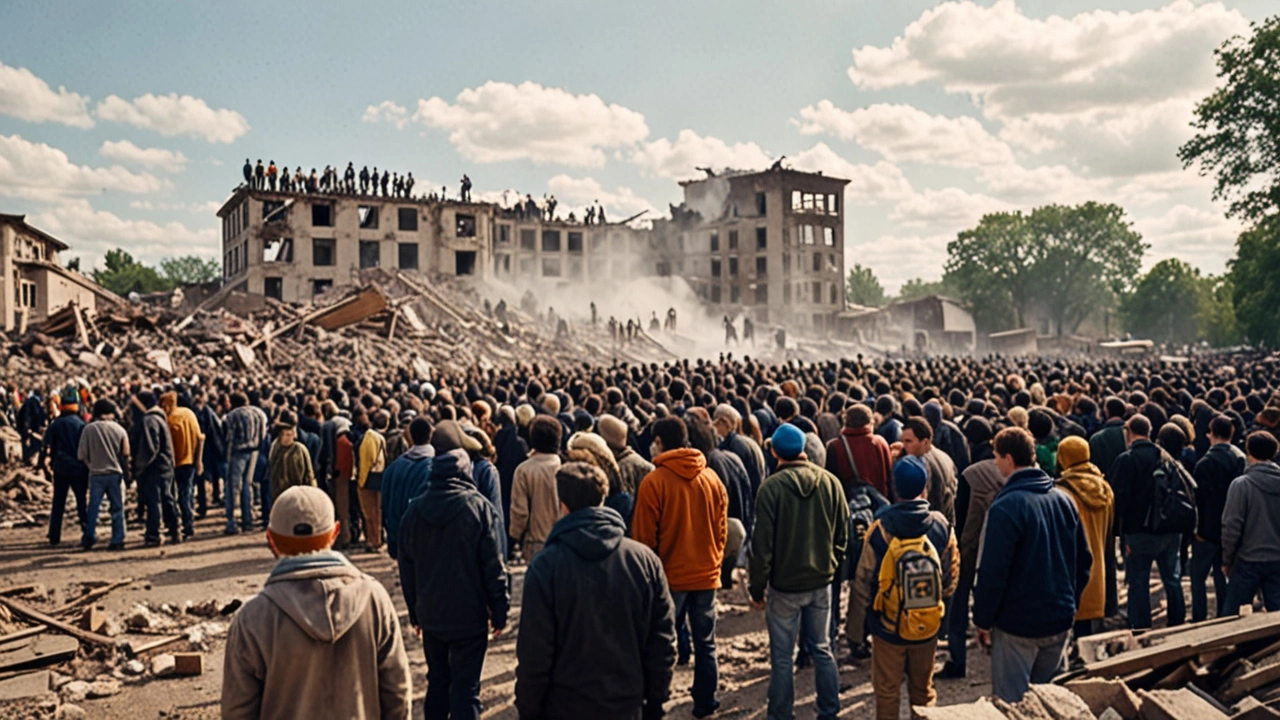At Least 22 Dead in Nigerian School Collapse
A tragic incident struck the Jos North district of Plateau State, Nigeria, as a two-story school building collapsed, leading to the deaths of at least 22 people, many of whom were students. The collapse occurred on a Friday morning while classes were in session at the Saints Academy college. This sudden disaster has drawn attention to the disturbing trend of building collapses in the region.
Rescue Operations Underway
In the wake of the collapse, rescue efforts have been swift and robust. Heavy machinery was deployed to the scene in a desperate attempt to reach and save those trapped under the rubble. Local authorities report that as many as 120 people were initially trapped within the collapsed structures. Thanks to the tireless work of rescue teams, many have been evacuated, though the exact number of survivors remains uncertain. Horrifying witnesses include locals like Chika Obioha, who recounted seeing at least eight bodies at the tragedy site.
Survivor's Harrowing Account
Amidst the chaos and devastation, raw accounts from survivors provide a heartbreaking glimpse into the disaster. Injured student Wulliya Ibrahim shared his painful experience, explaining how he was in class when the building began to collapse. He heard a terrifying sound and barely had time to react before finding himself in a hospital bed. Stories like Wulliya’s paint a poignant picture of the sheer terror and helplessness experienced by those caught in the collapse.
Causes and Consequences
The Plateau State government has launched an investigation into the incident, attributing the collapse to the school's structural weaknesses and its risky location near a riverbank. This tragic event exposes a critical issue plaguing Nigeria: the frequency of building collapses. Over the past two years alone, more than a dozen such incidents have been recorded, claiming numerous lives and leaving many others injured.
Experts point to several factors contributing to these recurring disasters. Poor construction practices, substandard building materials, and lack of regulatory oversight are commonly cited. In some cases, corruption and negligence add to the problem, with some contractors cutting corners to save costs at the expense of safety. Addressing the systemic issues will require a multifaceted approach involving governmental action, stricter enforcement of building codes, and increased public awareness about construction standards.
Community Responses and Broader Implications
Beyond the immediate tragedy, the collapse of Saints Academy college has sparked widespread outrage and grief among local communities and the nation at large. Families are mourning the loss of their loved ones while demanding justice and accountability. The incident has also ignited conversations about the broader implications for educational infrastructure throughout Nigeria. With the rising population and increasing demand for schools, ensuring that buildings are safe and secure is crucial to prevent such disasters in the future.
This heartbreaking event serves as a grim reminder of the importance of building safety codes and the role of governance in enforcing them. It also underscores the importance of community vigilance and involvement in advocating for safer environments.

Looking Forward: A Call to Action
The devastating collapse of the school in Jos North district is a stark call to action for all stakeholders involved. It presses the Nigerian government to reassess and reinforce existing policies regarding building construction and safety. Moreover, it encourages communities to hold developers and contractors accountable, ensuring that projects meet the necessary safety standards. In memory of those lost in this tragic event, there must be a concerted effort to prevent such incidents from occurring again.
As rescue operations continue and the community grieves, the hope is that this tragedy will catalyze meaningful change. The goal is to create a future where students can learn in safe, secure environments without the looming threat of structural collapses. For now, amidst the sorrow and loss, it remains crucial to support the affected families and work towards preventing such heartbreak in the future.

Write a comment